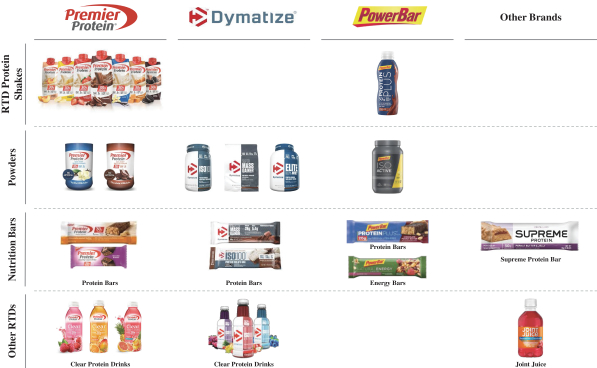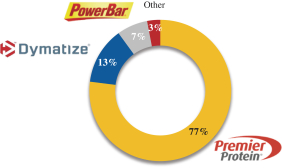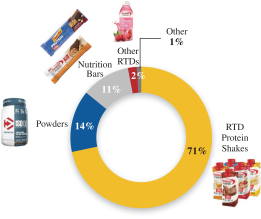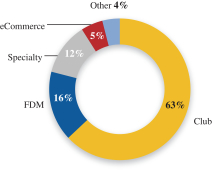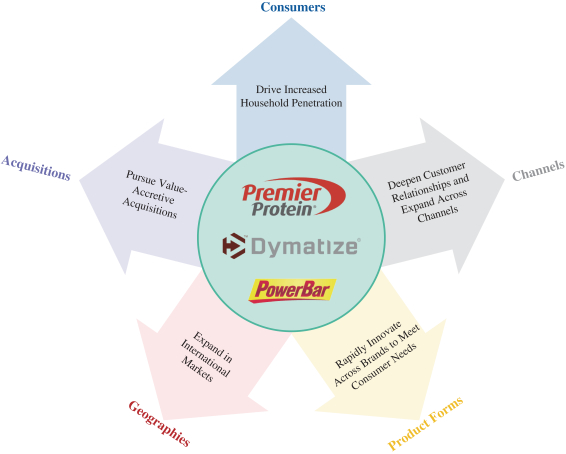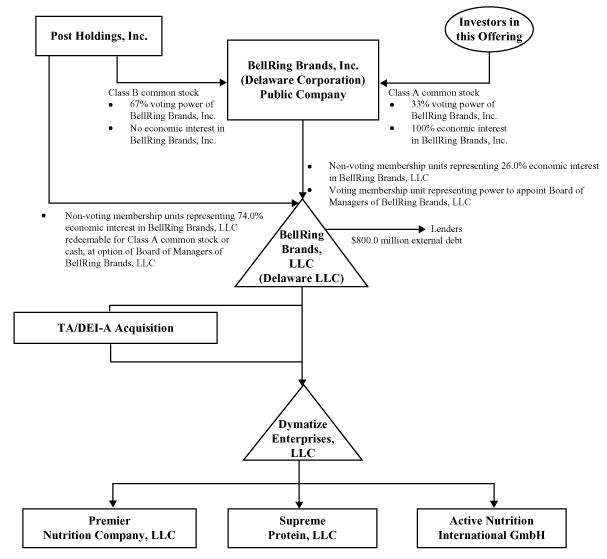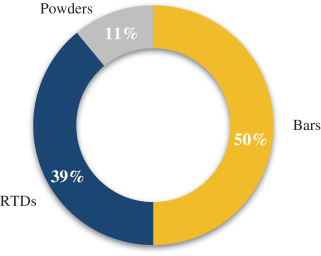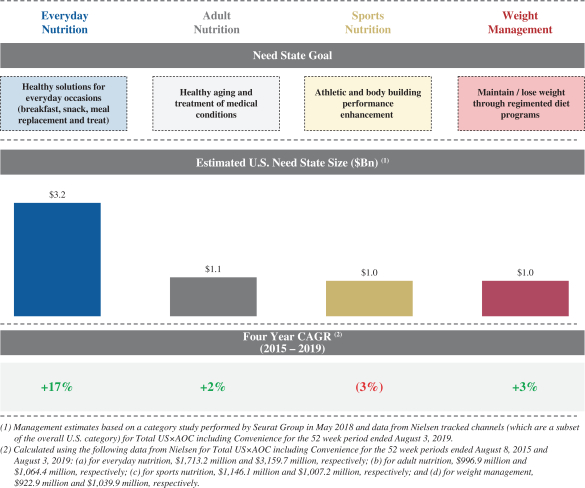Our reliance on a limited number of suppliers for certain ingredients and packaging materials, the price and availability of ingredients and packaging materials, higher freight costs and higher energy costs could negatively impact profits.
We rely on a limited number of third party suppliers to provide certain ingredients used in our business. The primary ingredients used in our business include milk-based, whey-based andsoy-based proteins and protein blends, and one supplier provides the majority of our milk-based protein. The supply and price of these ingredients are subject to market conditions and are influenced by many factors beyond our control, including animal feed costs, weather patterns affecting ingredient production, governmental programs and regulations, insects, plant diseases and inflation. Our primary packaging materials include aseptic foil and plastic lined cardboard cartons, aseptic plastic bottles, plastic jars and lids, flexible film, cartons and corrugate. We utilize a sole supplier for the aseptic packaging for ourPremier Protein RTD shakes in the 11 ounce size. Although we maintain relationships with suppliers with the objective of ensuring that we have adequate sources for the supply of such ingredients and packaging materials, increases in demand for such items, both within our industry and in general, can result in shortages and higher costs. Our suppliers may not be able to meet our delivery schedules, we may lose a significant or sole supplier, a supplier may not be able to meet performance and quality specifications and we may not be able to purchase such items at a competitive cost. Further, the cost of ingredients and packaging materials may fluctuate widely, and we may experience shortages in certain items as a result of limited availability, increased demand, weather conditions and natural disasters, as well as other factors outside of our control. Our freight costs may increase due to factors such as limited carrier availability, increased fuel costs, increased compliance costs associated with new or changing government regulations and inflation. Higher prices for natural gas, propane, electricity and fuel also may increase our ingredient, production and delivery costs. The prices charged for our products may not reflect changes in our ingredient, packaging material, freight, tariff and energy costs at the time they occur, or at all.
The loss of key supply sources, for any reason, our inability to obtain necessary quantities of ingredients and packaging materials or changes in freight or energy costs may limit our ability to maintain existing margins and may have a material adverse effect on our business, financial condition, results of operations and cash flows. If we fail, or are unable, to hedge and prices subsequently increase, or if we institute a hedge and prices subsequently decrease, our costs may be greater than anticipated or greater than our competitors’ costs, and our business, financial condition, results of operations and cash flows could be adversely affected.
Disruption of our supply chain and changes in weather conditions could have an adverse effect on our business, financial condition, results of operations and cash flows.
Our ability to make, move and sell products in coordination with our suppliers, business partners and third party contract manufacturers is critical to our success. Damage or disruption to our collective supply, manufacturing or distribution capabilities resulting from weather, freight carrier availability, any potential effects of climate change, natural disaster, disease, fire, explosion, cyber-attacks, terrorism, pandemics, strikes, repairs or enhancements at facilities manufacturing or delivering our products or other reasons could impair our ability to manufacture, sell or timely deliver our products.
Changes in weather conditions and natural disasters, such as fires, floods, droughts, frosts, hurricanes, earthquakes, tornados, insect infestations and plant disease, also may affect the cost and supply of commodities used as raw materials, including milk-based, whey-based andsoy-based proteins and protein blends. Further, as we rely on a limited number of third party suppliers to provide certain ingredients and packaging materials, and one supplier for the majority of our milk-based protein, adverse events affecting such suppliers may limit our ability to obtain such raw materials, or alternatives for these raw materials, at competitive prices, or at all. For example, for the last twelve months ended June 30, 2019, approximately 84% of ourPremier ProteinRTD shake supply came from our largest contract manufacturer, Stremick’s Heritage Foods, LLC, from its three manufacturing facilities located in Riverside and Santa Ana, California and Joplin, Missouri, with approximately 57% of such supply manufactured at the Joplin, Missouri facility. In 2011, a major tornado struck Joplin, Missouri, but our supply of product from the Joplin, Missouri facility was not impacted. In addition, production
30





